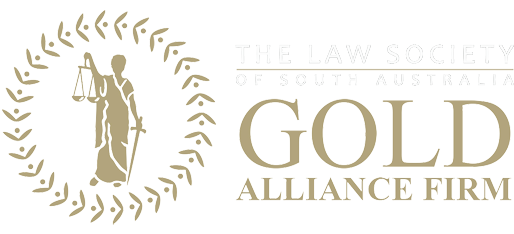Expert Business Dispute Lawyers & Commercial Litigation Solicitors in Adelaide, South Australia
Dealing with a business dispute or facing commercial litigation can be one of the most stressful and costly challenges your company faces. At O’Toole Lawyers, we provide strategic, commercially-focused legal advice to South Australian businesses to quickly and effectively resolve complex problems.
From our base in Adelaide, we combine deep knowledge of SA commercial law with a practical approach to protect your business interests, preserve key relationships, and achieve the best possible outcome. Don’t let a legal problem derail your operations—partner with a specialist who understands the unique environment of South Australia’s business community.

Make an enquiry
Navigating Complex Business Problems Across South Australia
Our focus is on delivering clear, timely, and cost-effective legal strategies. We understand that every day a business dispute lingers, it affects your bottom line. Whether you are a small to medium-sized enterprise (SME) or a larger corporation, our team has the expertise to handle a wide range of issues, from informal mediation to representation in the Supreme Court of South Australia or the Federal Courts.
We help SA businesses resolve disputes in key areas, including:
Contract Disputes & Breach of Contract Claims
Whether a supplier has failed to deliver or a partner has violated an agreement, we provide expert advice on your rights and obligations under Australian contract law. We are experts at interpreting complex commercial contracts and finding practical resolutions for Adelaide businesses.
Partnership, Shareholder & Corporate Disputes
Internal conflicts can be the most damaging. We assist in resolving disputes between business partners, directors, and shareholders in South Australian companies, including issues regarding fiduciary duties, company control, and winding-up proceedings.
Property, Leasing & Tenancy Litigation
Our team assists both commercial landlords and tenants in SA with disputes over lease agreements, rent reviews, breaches of covenant, and property-related litigation. We understand the specific nuances of South Australian property law.
Debt Recovery & Insolvency
When money is owed to your business, we act decisively. We implement effective strategies for debt recovery for South Australian creditors. We also provide advice to directors facing insolvency issues or creditors dealing with corporate administration.
Competition & Consumer Law Issues
We guide businesses through allegations of misleading conduct, breaches of the Australian Consumer Law, and competition issues, ensuring your company remains compliant and protected within the South Australian marketplace.
The O’Toole Difference: Local Adelaide Expertise, Commercial Focus
Choosing the right commercial litigation solicitor is crucial. When you engage O’Toole Lawyers for your business problem, you benefit from:
- Deep Local Knowledge: We are firmly rooted in Adelaide and possess an in-depth understanding of the South Australian Courts and regulatory landscape. Our advice is always tailored to the local environment.
- Commercial Priority: We are not simply litigators; we are problem solvers. Our primary goal is to achieve a strategic outcome that makes commercial sense for your business, often resolving matters efficiently through negotiation and mediation before formal court action is required.
- Strategic & Transparent Advice: We assess your legal position clearly and honestly, providing a practical roadmap and transparent cost estimates from the outset.
Ready to Resolve Your Business Problem?
If your South Australian business is facing a legal challenge, don’t delay. Early intervention is key to a successful resolution and minimising costs.
Contact the dedicated team at O’Toole Lawyers today for a confidential discussion about your business dispute.
📞 Call us now to speak with an experienced Adelaide commercial litigation lawyer.
Adelaide Business Problems Resolution FAQ
1. What is a director’s liability?
Directors of companies can be personally liable for breaches of the Corporations Act 2001 (Cth), including insolvent trading, unpaid employee entitlements, and failing to meet statutory duties.
2. What are my duties as a company director?
Directors must:
- Act in the company’s best interests
- Avoid conflicts of interest
- Prevent insolvent trading
- Comply with corporate laws and reporting obligations
3. What happens if my company becomes insolvent?
Directors can be held personally liable if the company trades while insolvent. Legal advice is crucial if your business is under financial stress.
4. Can directors be fined or prosecuted?
Yes. Breaches of director duties can result in civil penalties, criminal prosecution, and disqualification from managing corporations.
5. How can I reduce director liability risk?
- Maintain accurate financial records
- Monitor cash flow and solvency
- Seek legal and accounting advice early
- Ensure compliance with workplace, tax, and safety laws
6. What common business problems do directors face?
- Disputes with partners, shareholders, or employees
- Contract breaches and commercial litigation
- Debt recovery or creditor claims
- Regulatory investigations
7. Can I be personally sued for business debts?
Generally, directors are not personally liable for company debts unless they:
- Provide personal guarantees
- Commit fraud or illegal conduct
- Engage in insolvent trading
- Owe the ATO money
8. What is a shareholders’ dispute?
A shareholders’ dispute arises when owners disagree on company management, profit distribution, or governance. Legal intervention can help resolve issues through negotiation, mediation, or court orders.
9. How can I protect my business legally?
- Draft clear contracts with clients, suppliers, and employees
- Document board decisions and approvals
- Regularly review compliance with corporate and employment laws
10. Do I need a lawyer for business legal issues?
Yes. Early legal advice can prevent disputes, mitigate risks, and protect directors from personal liability.


